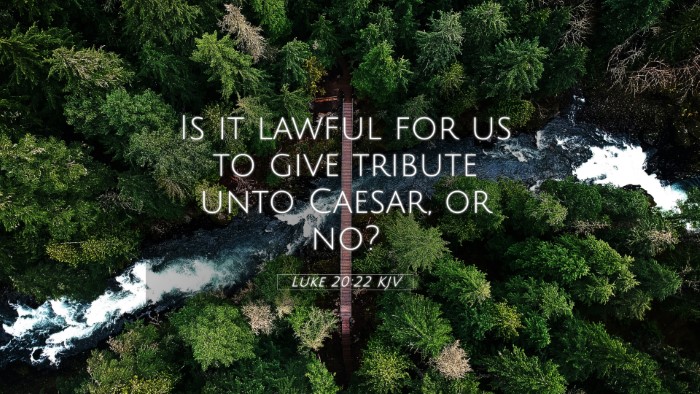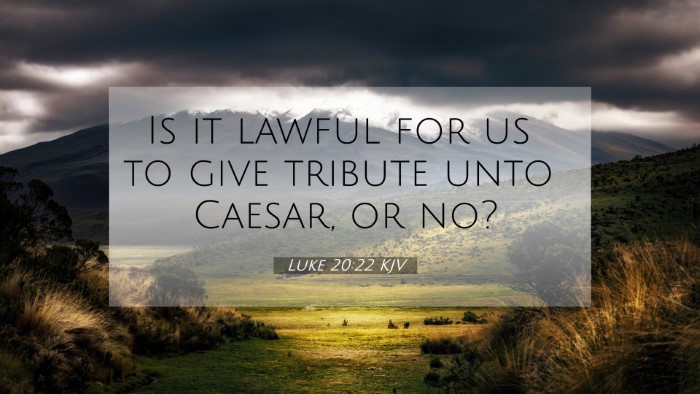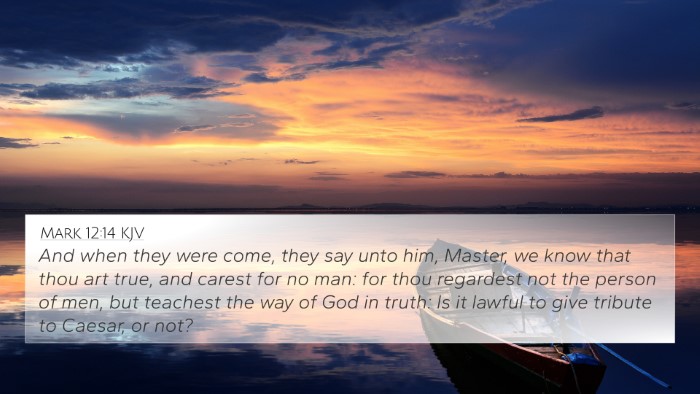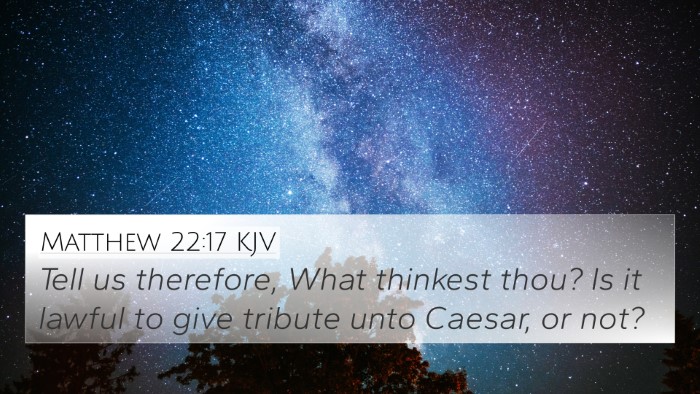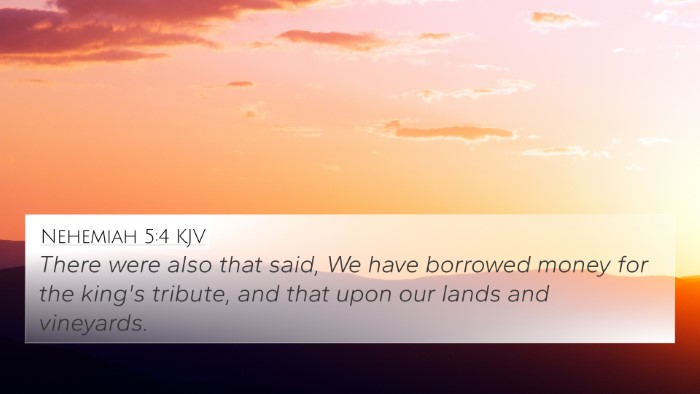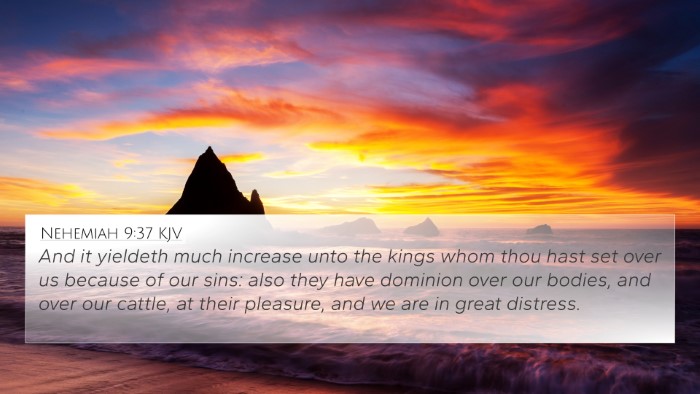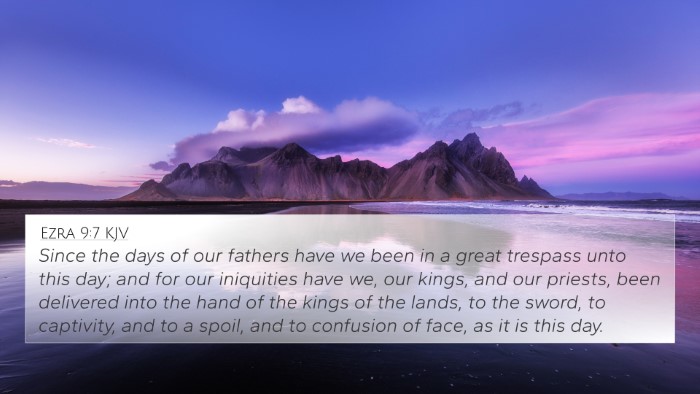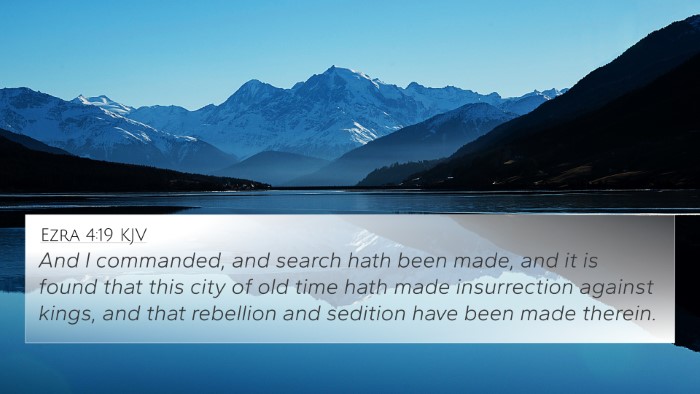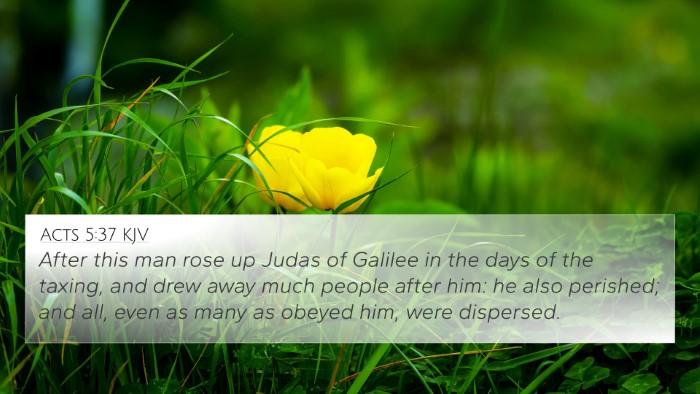Understanding Luke 20:22
Verse Context: Luke 20:22 states, "Is it lawful for us to give tribute unto Caesar, or no?" This verse is situated in a moment where the Jewish leaders are attempting to trap Jesus with a question about paying taxes, creating a complex scenario that challenges both the political and spiritual realms.
Summary of Insights: This verse illustrates the tension between civic duty and religious obligation. The question posed by the Pharisees is laden with implications, aiming to entangle Jesus in a controversial stance against Roman authority or the Jewish populace. The multilayered meaning of this verse incorporates several theological and socio-political dimensions.
Commentary Insights
Matthew Henry's Commentary
Henry interprets this as a significant moment in which the religious leaders seek to undermine Jesus' authority. By questioning the legality of paying taxes to Caesar, they aimed to place Jesus in a no-win situation. Accepting the tax would alienate him from the nationalistic sentiments of the Jewish people while rejecting it would mark him as a rebel against Rome. Henry emphasizes the wisdom of Christ as he navigates this perilous question.
Albert Barnes' Notes on the Bible
Barnes highlights the cleverness of the question posed to Jesus. He expounds on the implications of tributes, noting that paying taxes can be viewed either as a submission to earthly powers or as an acknowledgment of God's sovereignty. Barnes emphasizes that Jesus' response serves to clarify the relationship between spiritual allegiance and earthly governance.
Adam Clarke's Commentary
Clarke discusses the historical context of the Roman taxation system and how it affected the Jewish people. He clarifies that the tribute in question was a denarius, which features Caesar's image, thus serving as a powerful symbol of imperial authority. Clarke points out that Jesus' answer emphasizes the principle of due respect to civil authorities while also sustaining the ultimate regard for God.
Biblical Cross-References
- Matthew 22:17-21: A parallel account where the question of paying taxes is similarly posed.
- Mark 12:14-17: Another recounting of the event, emphasizing the same themes of taxation and civil duty.
- Romans 13:6-7: Discusses the obligation of Christians to pay taxes and respect authority.
- 1 Peter 2:13-14: Encouragement to submit to human institutions for the Lord’s sake.
- Exodus 30:13-15: Old Testament reference to a type of tribute expected from the people of Israel.
- Matthew 17:24-27: The incident of the temple tax poses a similar issue of authority and obligation.
- Luke 23:2: Jewish leaders accusing Jesus of forbidding tribute to Caesar, highlighting the political implications.
Thematic Connections
Luke 20:22 embodies several themes prevalent within both the New Testament and the broader biblical narrative:
- Authority: The question reflects the struggle for power and jurisdiction over the faith community.
- Civic Responsibility: Addresses the balance between earthly obligations and heavenly mandates.
- Sacred vs. Secular: Explores the tensions inherent in navigating spiritual and civic duties.
- Wisdom of Christ: Jesus' ability to answer the question astutely shows his divine insight.
Cross-Referencing Bible Study
For those looking to delve deeper into Luke 20:22 and its implications, several tools and methods can be employed:
- Utilizing a Bible concordance to trace key terms such as 'tribute' and 'Caesar' across scriptures.
- Employing a Bible cross-reference guide can illuminate connections between related passages.
- Engaging in cross-reference Bible study can enrich one’s understanding of the thematic elements.
- Consulting resources that provide comprehensive Bible cross-reference materials for thorough study.
User Intent Questions
Here are some questions to consider when studying this verse:
- What verses are related to Luke 20:22 in terms of taxation?
- How do luke 20:22 and Romans 13:6-7 connect regarding civic duties?
- What similarities exist between Luke 20:22 and Matthew 22:17-21?
- Are there Bible verses that support the premise of paying taxes as depicted in Luke 20:22?
Conclusion
In summary, Luke 20:22 serves as a pivotal point of inquiry that not only highlights the challenges Jesus faced but also invites deep theological reflection regarding our own obligations to God and government. By cross-referencing with other biblical texts, one can enrich their understanding of this complex interface of faith and duty.

